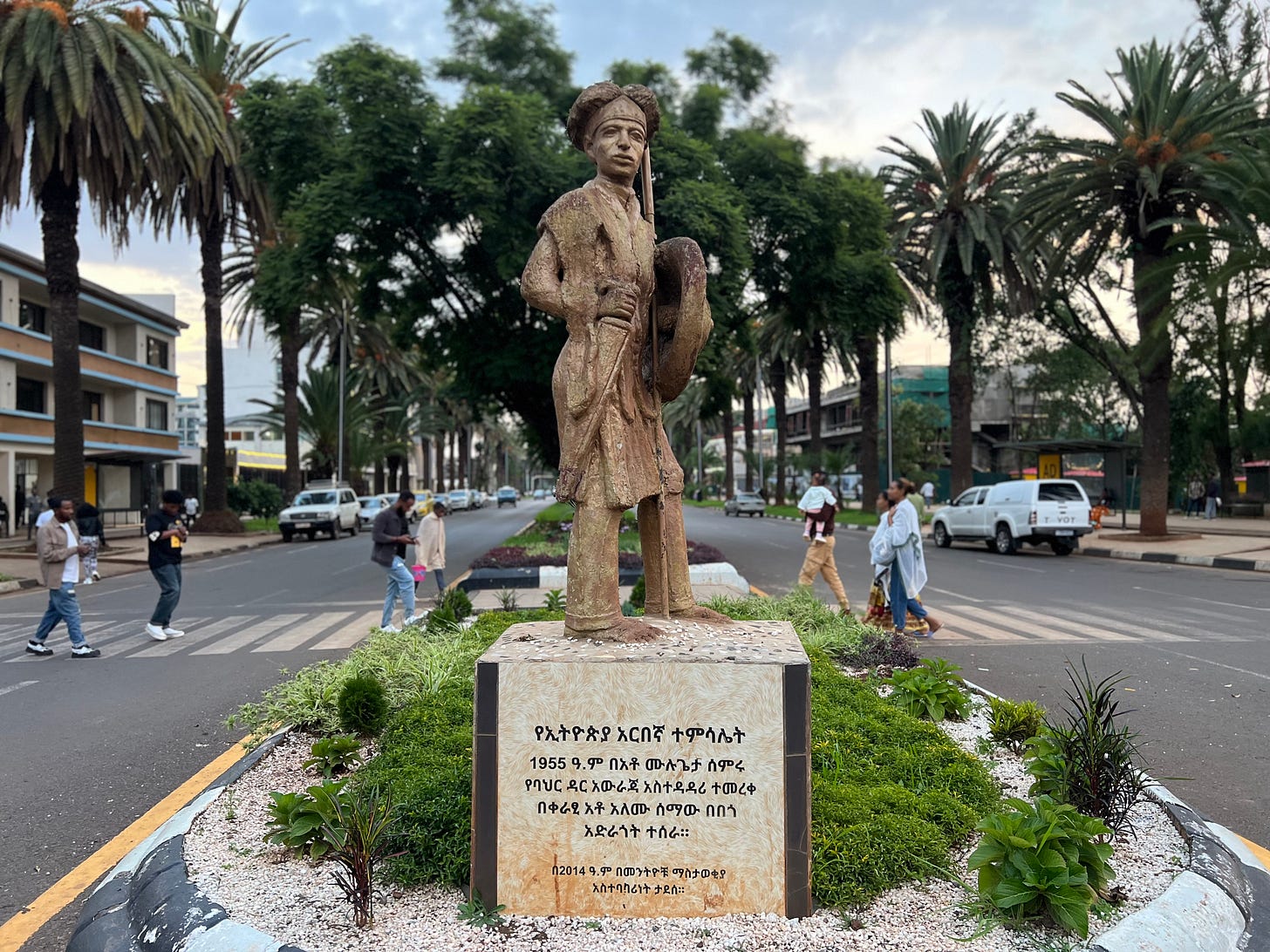Two resignations, one clear message
and targeting aid workers
Hi there,
I spent the past week in Bahir Dar, the capital of Ethiopia’s Amhara region. I won’t be able to get into the details of that trip in this edition, but if you’re curious about how things are over there, just reply to this email and ask. I’m on the other end.
My name is Maya Misikir, and I’m a freelance reporter based in Addis Abeba. I write Sifter, this newsletter where I send out the week’s top 5 human rights stories in Ethiopia.
Now, to the news.
Human rights: two resignations, one message
The Ethiopian Human Rights Commission is falling apart in front of our very eyes. The latest development is the resignation of its Deputy Commissioner, Rakeb Melese, and its Commissioner for Women, Children, Older Persons, and Disability Rights, Rigbe Gebrehawaria. Both are very vocal women and respected human rights defenders.
The first major blow came in January when Berhanu Adelo was appointed as the chief Commissioner. A man twice removed from his official roles in government because of ‘complaints lodged against him by employees’.
The two commissioners were “pushed” to resign, say a story on Addis Standard, because of the Chief Commissioner’s “leadership style”.
Here’s an excerpt:
The resignation comes a month after Prime Minister Abiy Ahmed accused the Ethiopian Human Rights Commission (EHRC) of issuing biased reports in recent years.
In the fourth part of an interview series with Ethiopian Television, Prime Minister Abiy stated that the EHRC had been issuing reports against the Ethiopian government “in a distorted manner” over the past three to four years.
This latest development hasn’t really come as a shock to most people I spoke to, but it’s still disheartening to see the Commission, which has been providing important insights into rights violations happening across the country, unravel in real time.
Aid: an ‘ongoing investigation’
Three aid workers, staff members of Doctors Without Borders, were intentionally killed during the Tigray war, according to the findings of the organisation’s internal review. The investigation indicates that its three staff members, two Ethiopians and one Spanish national, were killed in 2021 despite being clearly identified as aid workers.
Here’s an excerpt from the story on Al Jazeera:
“This was not the result of crossfire, nor was it a tragic mistake. Our colleagues were killed in what can only be described as a deliberate attack,” said Paula Gil, president of MSF-Spain.
Since the death of three staff members, the organisation has been pushing to get the Ethiopian government to investigate the killings. However, ‘despite numerous follow-ups with the federal authorities in Addis Ababa’, the organisation has yet to receive answers, adds the story.
The full story on Al Jazeera, here.
Labor rights: health professionals still in jail
At the end of last month, I wrote an update on the suspension of the Ethiopian Health Professionals Association. The Association was suspended because of its vocal support for the health workers’ strike in the country, according to its president.
The strike that started in May has since resulted in the arrest of health workers across the country. A statement by Public Services International has called for the release of Dr. Daniel Fentaneh, adding that the ‘workers’ grievances are clear and legitimate’.
Here’s an excerpt:
“His arrest, along with the detention of many other health workers over the past weeks, is an attack on the right of all workers in Ethiopia to organize, speak out, and to demand their rights.”
The full statement, here.
Refugees: budget cut implications
The UN’s refugee agency says that over 11 million refugees and asylum seekers risk losing access because of funding cuts. The agency is scaling back health and education services, as well as the ‘prevention of and responses to gender-based violence’.
Here’s an excerpt from a story on The Reporter:
In South Sudan, 75 per cent of safe spaces for women and girls supported by UNHCR have closed, leaving up to 80,000 refugee women and girls, including survivors of sexual violence, without access to medical care, psychosocial support, legal aid, material support or income-generating activities.
The full story on The Reporter, here.
Migration: who will be held accountable?
Tens of thousands of Ethiopians make their way to Saudi Arabia every year, taking what is known as the Eastern Route. The route goes from Ethiopia, through Somalia or Djibouti, into and through Yemen, to Saudi Arabia.
Earlier in April, migrants arrested and staying in detention centers in Yemen had become targets of U.S. air strikes. At least 60 people were killed in one day.
Here’s an excerpt from a story in The New York Times:
The Pentagon said it had struck more than 1,000 targets in Yemen, destroying “multiple command-and-control facilities, air defense systems, advanced weapons manufacturing facilities, and advanced weapons storage locations.”
As the detention center did not serve a military function, ‘it is unclear why the prison might have been a target’, adds the story.
What has been the response of the U.S.? It is ‘conducting an inquiry’ but it “will not reveal specifics about what we’ve done or what we will do” (on the grounds of operational security).
The full story on The New York Times, here.
Was this forwarded to you by someone? Then hit the button below to subscribe and get free weekly updates on Ethiopia.



thank you, My. 🫶🏾